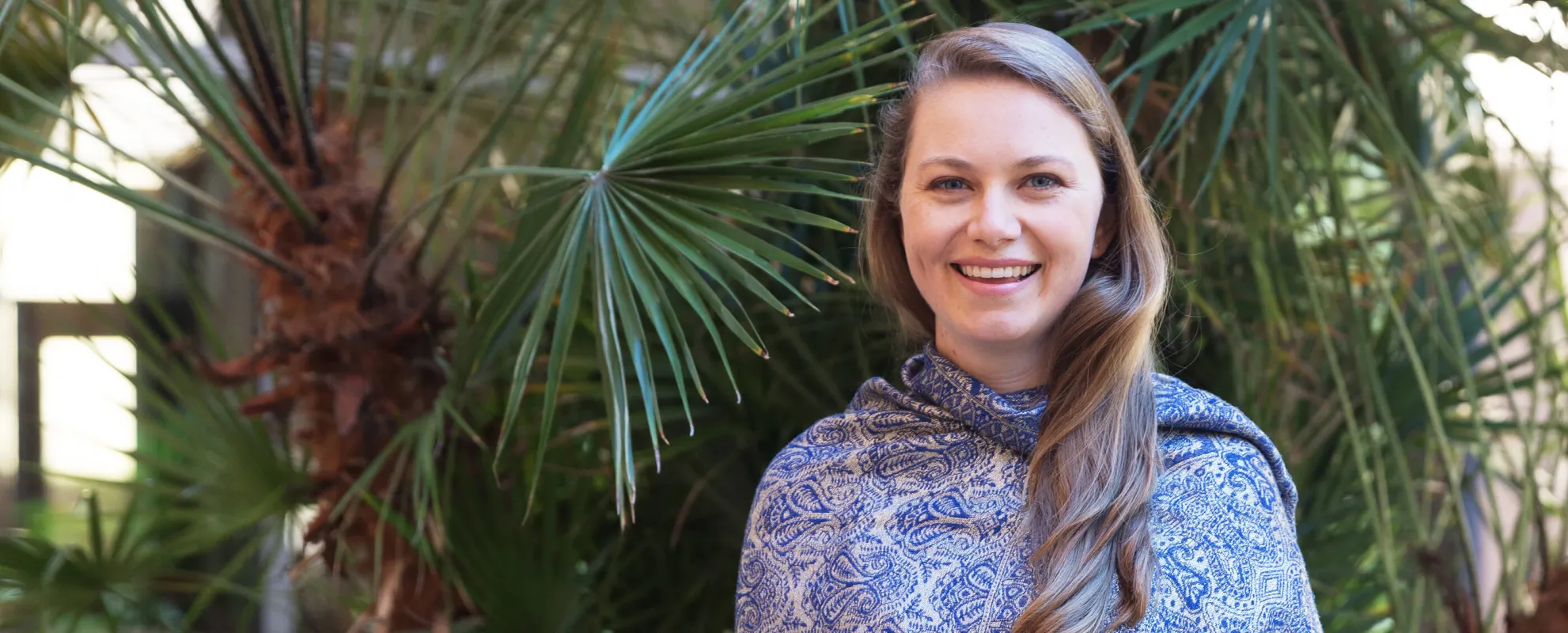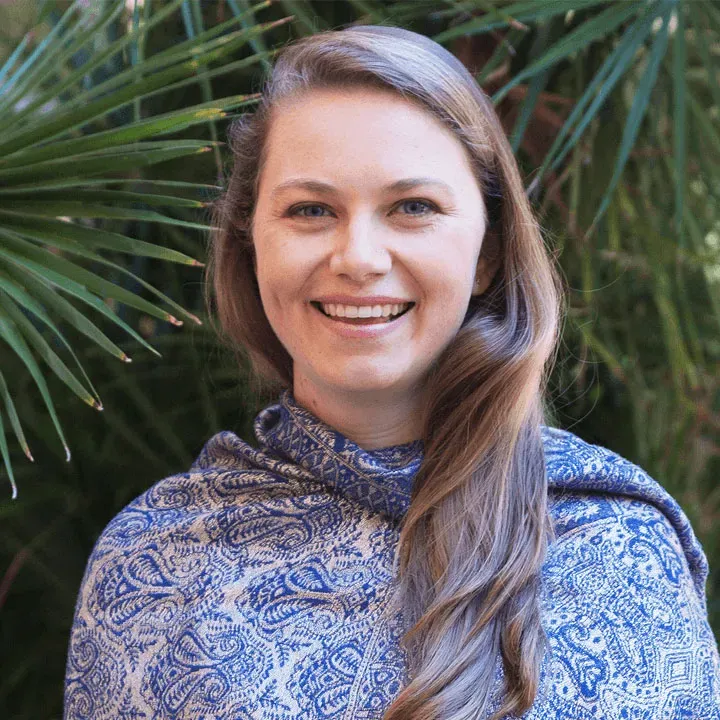One humid summer morning in 2012, Samanthe Tiver Belanger, MBA ’18, awoke to a terrible, sour smell. She rushed out of her seaside apartment and headed for the shore. Rotting fish blanketed the sand.
“That day was the first of many hypoxic die-offs that summer,” Tiver Belanger says of her time working as an environmental interpreter in Virginia. (Fish die-offs occur when water’s oxygen levels decrease, often caused by algae bloom, overpopulation, drought, or toxicity in the ocean.) “That day it became clear to me that I couldn’t have a career that did not have climate change at its core. I realized this work would be our generation’s coming of age.”
The fish die-offs became a catalyst for Tiver Belanger in shifting her career focus to protect what she values. Beaches had been a staple of Tiver Belanger’s childhood in New Jersey, where she spent long afternoons playing in the waves with her sister.
From Nonprofit to MBA
Tiver Belanger studied economics at William & Mary and, motivated by her experience on the beach in Virginia, planned to one day get a master’s degree in environmental science. She aimed to work in the nonprofit sector, but her undergraduate mentor, professor Anne Charity Hudley, challenged her to think more broadly. “She told me, ‘Don’t think of what you want now, think of the job you want in 20 years, then think of the degree you’ll need to get there.’ ”
In the fall of 2015, Tiver Belanger began a joint degree at Stanford: a Master of Science in Environment & Resources from the School of Earth, Energy & Environmental Sciences and an MBA from the Graduate School of Business. Her coursework ranged from management to engineering, hydrology, and sustainable design. The marriage of both degrees would forge a variety of paths leading to change, she says: “I knew an MBA was a degree that would grow with me.”
Exceeding Expectations
In her first year at Stanford GSB, Tiver Belanger embraced the intellectual challenge of each class — she’d never taken accounting, yet chose finance as an elective. She was named a Siebel Scholar, a recognition awarded to five students for superb academic performance. Still, finding her place was a struggle. “It was a vastly different world than anywhere I’d ever lived,” Tiver Belanger says. “Trying to define myself and find people I could be myself around was really hard at first.”
Tiver Belanger credits other female influences in her life to pushing her to overcome her initial difficulty. She recalls Kristin Squires, MBA ’17, a former math teacher, pulling her aside after the first week of class.
“Kristin approached me and said, ‘I see you raise your hand,’ ” Tiver Belanger says. “She told me, ‘You have to raise it higher. And you have to raise it every single time.’ ”
Tiver Belanger took Interpersonal Dynamics, commonly known as “Touchy Feely,” her first year on campus. She also participated in TALK, a student-run tradition where MBAs present their personal life stories with classmates. In hers, she shared her experience growing up in a working-class community and the importance of cultivating camaraderie on campus. These opportunities to share her full self shifted Tiver Belanger’s experience in her second year on campus. “I exceeded my wildest expectations in finding people I connected with,” she says.
Adapt Versus Mitigate
When Tiver Belanger talks about the health of coastlines, she shares these facts: Half the world’s population lives within 100 miles of a coast, eight of the world’s 10 largest cities are located on the sea, and, in the U.S., 46% of the country’s GDP comes from coastal areas. “Mitigation is important work, but for coastal communities, sea level rise is happening now,” Tiver Belanger says. “I’ve always been pragmatic; adaptation is a good fit for me because it’s action-forward.”
Beginning in 2016, Tiver Belanger and Miyuki Hino, a PhD candidate in Stanford’s Emmett Interdisciplinary Program in Environment and Resources, spent a year researching rising sea levels’ effects on coastal towns’ economies. The duo focused on a waterfront shopping district in Annapolis, Maryland, and found that tidal flooding — temporary inundations that restrict access and block transportation — occurred more than 50 times in 2017, significantly decreasing revenue to local businesses.
“Customer access was disrupted; people couldn’t get to the stores,” Tiver Belanger said in her and Hino’s Capstone Project presentation.
After graduating from Stanford GSB in 2018, Tiver Belanger accepted a position at McKinsey & Company in Washington, D.C., as an associate. In the future, she hopes to work across sectors on coastal adaptation and infrastructure.
Photos by Kiefer Hickman


